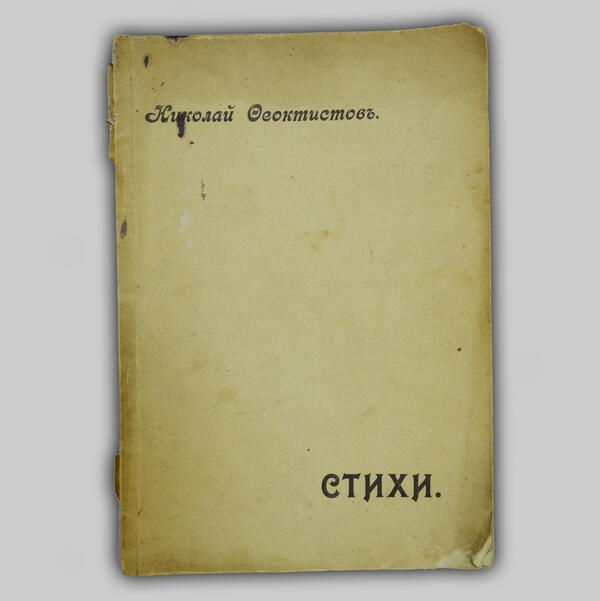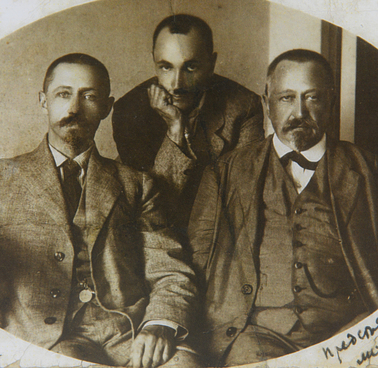Nikolai FeoktIstov (1884–1850) was born into a family of a civil servant in Zmeinogorsk, Altai Region. He studied in a Semipalatinsk boys' high school. In 1906, he began working as a proofreader and copy editor of the newspaper ‘Semipalatinsky Listok’ (Semipalatinsk Bulletin). Feoktistov wrote his first poem under the pen name FEVANI (first syllables of Nikolai VasIlyevich Feoktistov from right to left). From 1906 onwards, he served as an editor and proofreader of multiple publications and headed various literary associations. He demonstrated outstanding leadership skills wherever he was. Whether it be Omsk, Semipalatinsk, or NovosibIrsk, life was always in full swing around him. He gathered many young poets including LeonId MartYnov, Yevgeny Zabelin, VasIly Kazin, Ivan Yeroshin, and others. 1908 saw him working as a correspondent of newspapers ‘Omsky Telegraf’ (Omsk Telegraph) and ‘SibIrskaya Zhizn’ (Siberian Life) from Saint Petersburg. In 1911, he got the job of a secretary at ‘Omsky Telegraf’.
In 1913, Omsk printing house ‘Pechatnoye Iskusstvo’ (literally: Typographic Art) published 300 copies of a collection of poems by Nikolay Feoktistov, titled ‘Verses.’ The book was his first and last poetical release, although he wrote poems throughout his entire life. Notably, it also was the first original collection of poems published in Omsk. Grigory Potanin, famous Russian scientist and social activist, wrote, ‘Feoktistov, poet from Omsk, gave me a collection of his poems published in Omsk. These are the first Omsk verses’.
The book was divided into four sections, designated by Roman numerals without titles. The poems had no dates. The first section is dedicated to the Siberian wildlife. The section contains love lyrics and poems of life in the city. The third section, inspired by decadent poetry, is all about melancholy reflection. This section has an epigraph from Dmitry Merezhkovsky’s poem. The poems were selected thematically, instead of chronologically. Written in a traditional manner from the late 19th century, they bond over the Decadent movement. Today, the book is a rarity.



